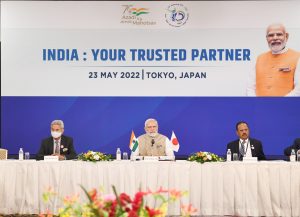
The IPEF, established in 2022, seeks to enhance economic ties between the United States and several Asia-Pacific countries. It is structured around four main pillars: trade, supply chains, clean economy, and fair economy. The clean economy pillar focuses on addressing the pressing challenges of climate change and environmental degradation through collaborative efforts in renewable energy and sustainable practices. India’s inclusion in this framework underscores its strategic pivot towards sustainable growth, a necessity given the country’s rapid urbanization and industrialization.
India’s agreements under the IPEF are aimed at fostering the transition to renewable energy sources, particularly solar, wind, and hydropower. This transition is crucial as the country grapples with air pollution and greenhouse gas emissions that threaten public health and exacerbate climate change impacts. By aligning with IPEF’s clean economy initiatives, India not only seeks to reduce its carbon footprint but also positions itself as a leader in renewable energy in the region.
Key aspects of the agreements involve commitments to technology transfer, investment in green infrastructure, and the establishment of standards for clean energy technologies. These efforts are expected to bolster India’s renewable energy sector, which has been a focal point of the government’s policies. The target of achieving 500 GW of non-fossil fuel capacity by 2030 highlights India’s ambition to transition to a cleaner energy matrix.
The fair economy pillar of the IPEF focuses on promoting labor rights, enhancing corporate transparency, and fighting corruption. India’s commitment to these principles reflects an understanding that sustainable economic growth cannot be achieved in a vacuum of ethical governance. By strengthening anti-corruption measures, India aims to enhance investor confidence and improve its business climate, essential for attracting foreign direct investment.
As India embarks on this journey, the collaboration with IPEF member states, including the U.S., Japan, and Australia, presents opportunities for shared learning and innovation. Experts note that access to advanced technologies and best practices from these nations will accelerate India’s clean energy transition. Furthermore, it creates a platform for India to showcase its own advancements in renewable technologies and climate solutions.
The implications of these agreements extend beyond environmental benefits. Economically, the transition to a clean economy is poised to create new jobs and stimulate growth in sectors such as manufacturing and service industries linked to renewable energy. India’s focus on clean technology development is expected to position it competitively in the global green economy, aligning with international trends toward sustainability.
Challenges remain, however, as India navigates its path forward. The reliance on coal for energy generation remains a significant hurdle, given that it accounts for over 70% of the country’s electricity. Transitioning to renewable energy sources will require substantial investments, robust policy frameworks, and infrastructure development. Furthermore, the integration of renewable energy into existing grids poses technical challenges that must be addressed to ensure reliability and efficiency.
Public acceptance and community engagement in renewable projects will be crucial. Past experiences have shown that local opposition can impede project implementation. Therefore, fostering community involvement and ensuring that the benefits of clean energy projects reach local populations will be essential in building public support.
International collaboration also plays a pivotal role in addressing these challenges. By partnering with other nations under the IPEF, India can leverage shared resources and expertise to overcome obstacles in its transition to a clean economy. Joint research initiatives, funding mechanisms, and knowledge-sharing platforms can facilitate innovation and drive progress in sustainable practices.
India’s participation in the IPEF clean and fair economy agreements signifies a broader commitment to not only meeting its climate goals but also contributing to global efforts to combat climate change. As nations collectively strive for sustainability, India's actions in the Indo-Pacific region could inspire similar commitments from other countries, fostering a collaborative approach to environmental stewardship.
